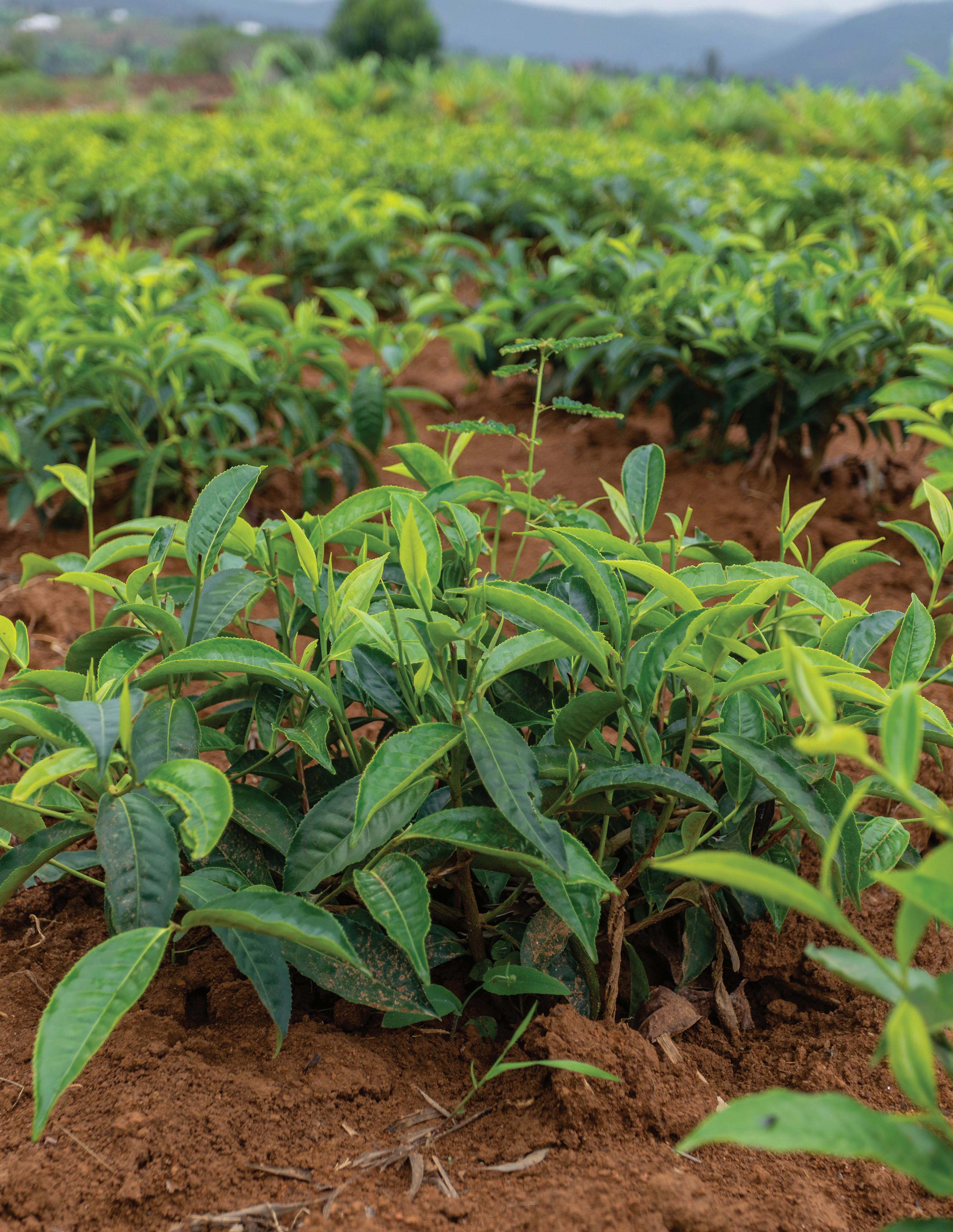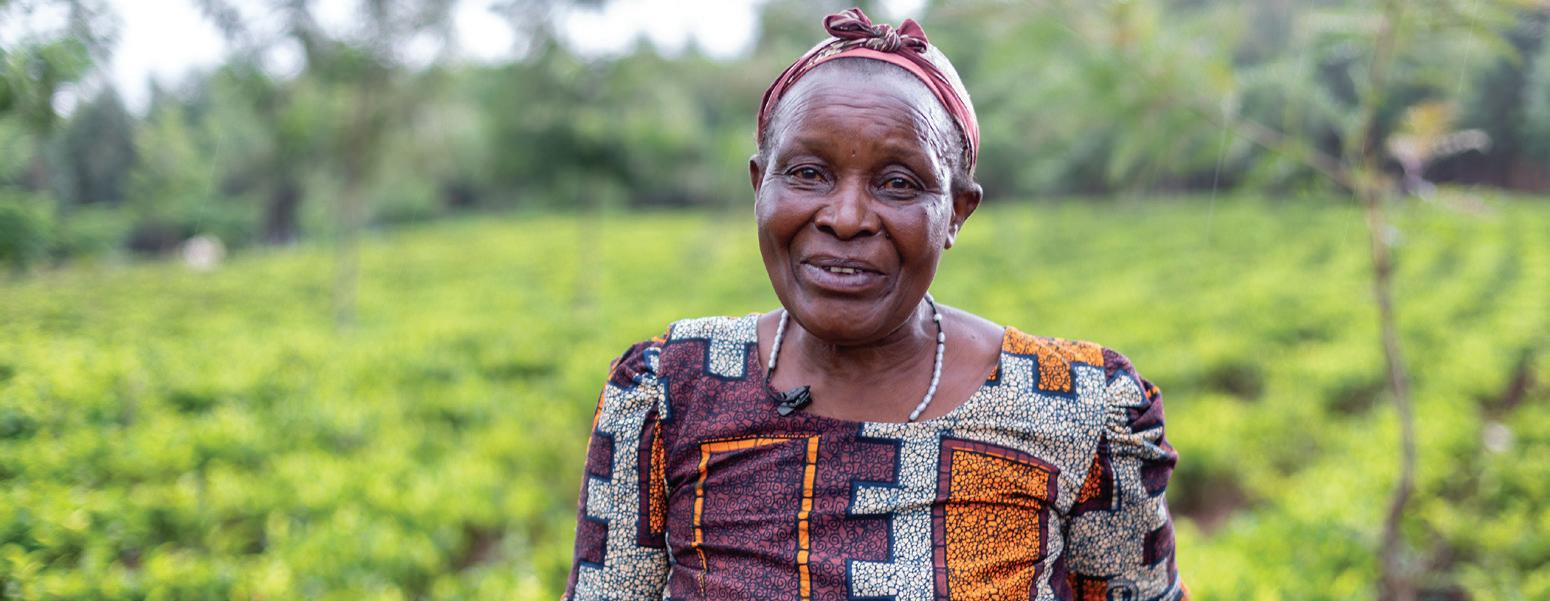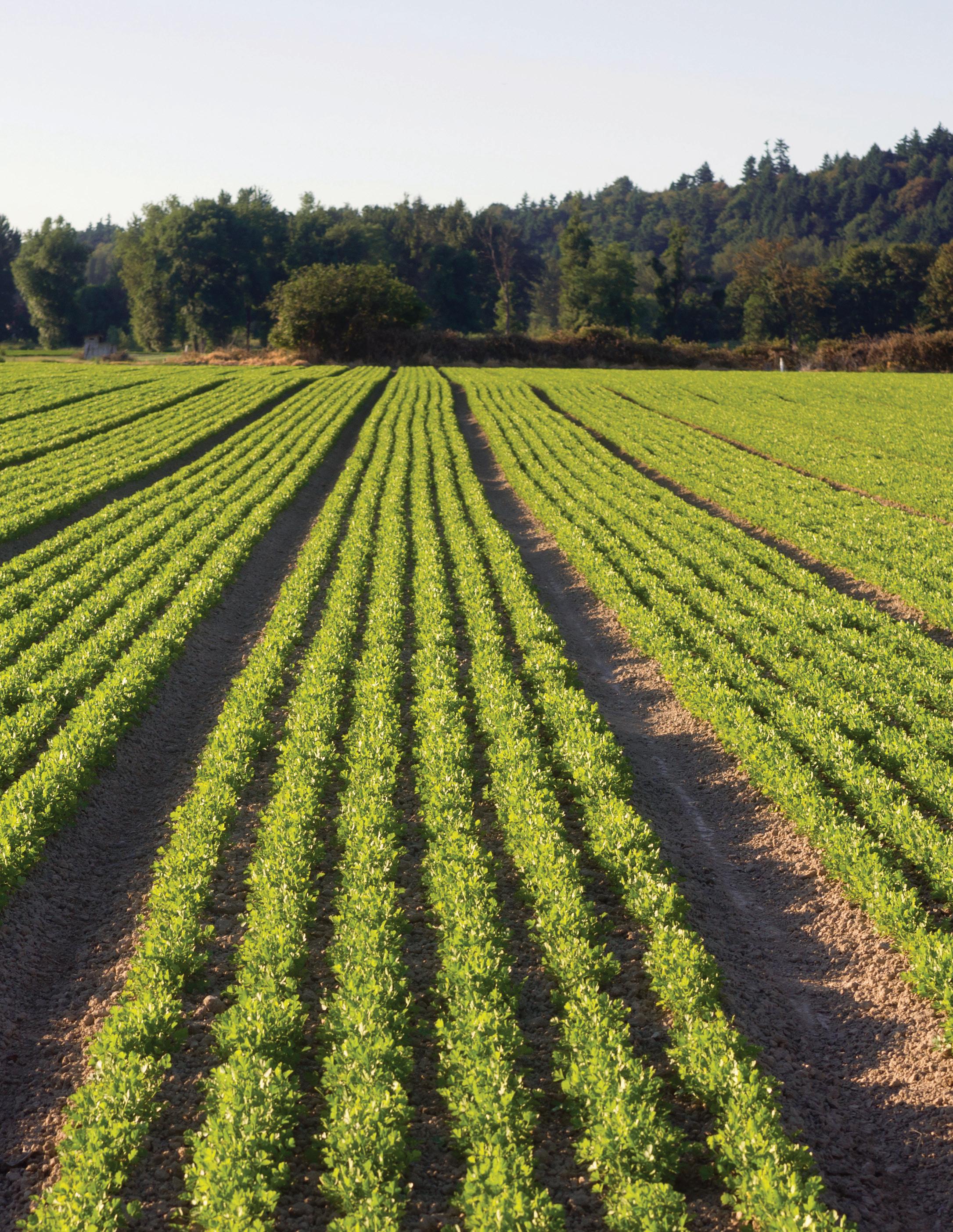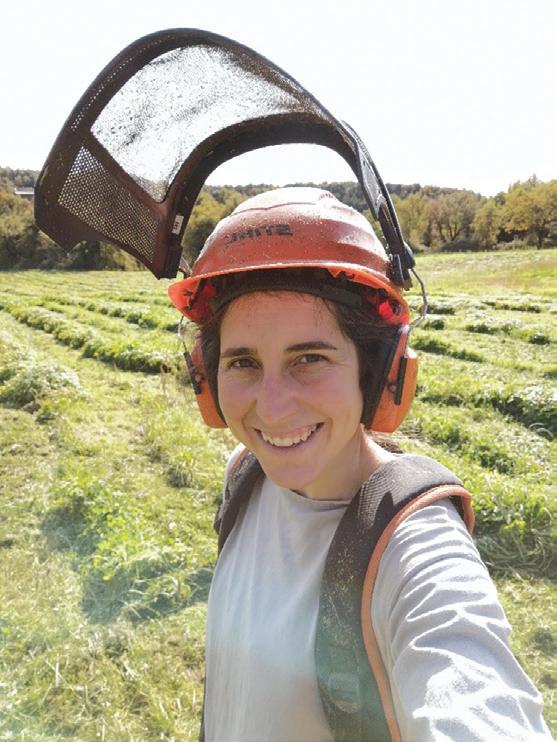
2 minute read
What do we mean when we say “sustainability”?
Featured project
Regenerating Rwanda
Earlier in this report we discussed how regenerative farming practices can address a host of pressing environmental issues. The benefits don’t stop there, however, as a special collaboration in Rwanda illustrates.
Our project combines the strengths of Yogi Tea and Choice Organics, with the nonprofit Practical Action, to make a difference for smallholder tea farmers. Our partner, Sorwathe, producers of the beautiful Rukeri black tea featured in Choice Organics blends like English Breakfast and Earl Grey, is working with us to plant lemongrass alongside their tea bushes.
This simple step could be revolutionary. Black tea is usually grown as a monoculture, meaning tea plantations will grow only tea bushes on their land. Diversifying crops is a regenerative agricultural practice, with potential benefits including mitigating soil runoff, enhancing water retention, and replenishing nutrients in soil. Planting lemongrass alongside tea bushes could offer significant environmental benefits on these farms.
Why lemongrass? Many farms do not diversify because it is challenging to find buyers for multiple crops. We overcome this challenge by working together: With Choice Organics already buying their tea, Yogi Tea pledged to purchase the lemongrass produced by this initiative – a harmonious and delicious combination, breathing new life into fields and farmers alike.

Discovery and disclosure
Transparency in our supply chain
It may seem strange, but many companies do not know where their ingredients come from. Brokers and middlemen have been taking over the buying and shipping of raw ingredients for generations, as many farms are too small to manage international shipping on their own.

In many instances, brokers are ethical, valuable partners, but they can obscure what is happening at the farm level. Part of our sustainability journey is uncovering the stories at our products’ source. We are committed to transparency in our supply chains: In other words, we want to know where exactly all our products are coming from – whether they come direct from the farm or via a trusted vendor.
We owe a lot to our supplier partners, and it is our pleasure to share a couple of our sources: Real people, whose products we are proud to feature, and whose stories we are honored to tell.
Gloria and Herbes del Moli: Persistence and perseverance
140 kilometers outside Barcelona, a remarkable woman is tending a field of lemon balm. This is Gloria: agricultural engineer, mother of three, and owner of El Castell farm, located in the hills of Lluçà.
We know Gloria through our long relationship with Herbes del Moli, a cooperative representing farmers throughout Spain. We’ve been working with them since the ’90s, and their amazing, organic Mediterranean herbs and spices bring sunshine flavors to many of our blends.
Gloria is an exceptional farmer in every sense. Small-scale farmers are becoming a rarity, squeezed out by difficult economics and pressure from new challenges like Covid-19. But she perseveres, maintaining her commitment to environmentally sound, organic farming practices.
On her farm she works with nature instead of against it. She protects 100 hectares of forest, grazing a herd of livestock amongst the trees. Another 30 hectares is planted to a diverse roster of organic botanicals. Farmers like her show the power and promise of responsible, ethical farming practices. We are proud to source her lemon balm, and help this remarkable woman continue her invaluable work.
You can find Herbes del Moli’s licorice, lemongrass, carob fruit, thyme, lavender, eucalyptus, rosemary, and alfalfa, as well as Gloria’s lemon balm, in our European tea blends.






